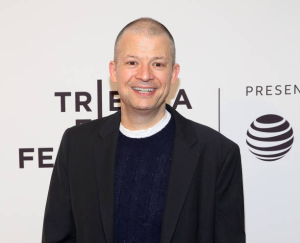
Early Life and Education
Omoyele Stephen Sowore was born on February 16, 1971, in Ondo State, Nigeria. His upbringing in the southern region of Nigeria would play a significant role in shaping his future as a vocal human rights activist and pro-democracy campaigner. Sowore grew up during a period of military dictatorship in Nigeria, an experience that would instill in him a deep desire for justice, equality, and good governance.
Summarized Details
| Full Name | Omoyele Stephen Sowore |
| Date of Birth | February 16, 1971 |
| Place of Birth | Ondo State, Nigeria |
| Nationality | Nigerian |
| Occupation | Human rights activist, journalist, lecturer, politician |
| Education | – University of Lagos (BSc in Geography & Planning) – Columbia University (Master’s in Public Administration) |
| Political Party | African Action Congress (AAC) |
| Years Active | 1992 – present |
| Notable Roles | – Founder, Sahara Reporters – Presidential candidate (2019, 2023 elections) |
| Key Advocacy Areas | Anti-corruption, pro-democracy, human rights |
| Arrests and Incidents | – Arrested in 2019 (treason charges) – Arrested again in 2021 (during protests) – Injured during protests (May 2021) |
| Known For | Founding Sahara Reporters, activism against Nigerian corruption, and government oppression |
As a young boy, Sowore showed an early interest in social justice and activism. His exposure to Nigeria’s political instability and economic challenges fueled his passion for advocating against oppression and corruption. He attended primary and secondary schools in Ondo State, where his interest in Nigerian politics deepened. This desire to create change led him to pursue higher education, a path that would solidify his commitment to activism.
In 1989, Sowore enrolled in the University of Lagos (UNILAG) to study Geography and Planning. His academic journey was far from smooth due to his strong political involvement. He became an outspoken student leader and quickly earned a reputation for his courage and tenacity in fighting for the rights of students and advocating for democratic reforms. Between 1992 and 1994, Sowore served as the President of the University of Lagos Student Union Government (SUG), where he was deeply involved in campaigns against cultism, corruption, and the mismanagement of university funds.
Sowore’s time as a student leader was not without its challenges. His activism led to multiple clashes with the authorities, resulting in two expulsions from the university. These expulsions extended his academic program by two years, ultimately delaying his graduation until 1995.
Activism and Early Career

Sowore’s activism did not end with his time as a student leader. In fact, it was just the beginning. In the early years following his graduation, he became increasingly involved in pro-democracy movements in Nigeria. His advocacy for human rights and good governance often put him at odds with the Nigerian government, especially during the military regimes of the 1990s.
In 1999, Nigeria transitioned to a civilian government, but Sowore’s activism continued as he saw many of the same issues that plagued the military era persist in the new democratic dispensation. He remained committed to speaking out against corruption, government inefficiency, and the oppression of ordinary Nigerians.
Sowore’s activism extended beyond Nigeria’s borders. After moving to the United States to further his education, he began using his platform to raise awareness about the state of governance in Nigeria. He engaged with the Nigerian diaspora and international organizations, amplifying the voices of those fighting for democracy and human rights back home.
In 2006, Sowore took a major step in his activism by founding Sahara Reporters, an online news platform based in New York City. Sahara Reporters quickly became known for its hard-hitting investigative journalism and fearless reporting on corruption, human rights abuses, and government mismanagement in Nigeria. The platform gave ordinary Nigerians a voice and exposed many scandals that would have otherwise gone unnoticed in the mainstream media.
One of the unique aspects of Sahara Reporters is its funding model. Unlike many media organizations that rely on advertising revenue or government support, Sahara Reporters is funded by grants from international foundations such as the Ford Foundation and the Omidyar Foundation. This model ensures that the platform remains independent and free from the influence of political or corporate interests. This commitment to independence and integrity has earned Sahara Reporters a reputation as one of the most reliable sources of news on Nigerian political affairs.
Personal Life
Sowore and his family have been residents of Haworth, New Jersey.
In September 2021, it was reported that Sowore’s younger brother had been shot dead by herdsmen or kidnappers in Edo state.
Justice Ijeoma Ojukwu of the Abuja division of the Federal High Court barred Sowore from travelling outside Abuja in October 2019. According to Sowore, the restriction prevented him from attending his brother’s burial.
Omoyele Sowore’s Net worth
Omoyele Sowore’s net worth is estimated to be between $10 million and $30 million. He is the founder of Sahara Reporters, a prominent online media platform based in New York. Often referred to as the “Wikipedia of Africa” for its bold and fearless reporting, Sahara Reporters has gained widespread recognition for encouraging citizen journalism. Sowore has empowered Nigerians to expose corruption within the government. The platform gained international attention when it became the first news outlet to publish a photo of Umar Farouk Abdulmutallab, the suspected terrorist accused of attempting to blow up Northwest Airlines Flight 253 on Christmas Day by detonating an explosive hidden in his underwear.
Political Career and Presidential Ambitions
Sowore’s activism eventually led him to formal politics. In August 2018, he founded the African Action Congress (AAC), a political party aimed at providing a platform for progressive ideas and a new approach to governance. The AAC’s formation came in response to what Sowore saw as the failures of Nigeria’s two dominant political parties — the All Progressives Congress (APC) and the People’s Democratic Party (PDP) — in addressing the country’s most pressing challenges.

The AAC positioned itself as a party for the people, focusing on issues such as job creation, education, healthcare, and the fight against corruption. Sowore’s message resonated with many Nigerians, particularly the youth, who were disillusioned with the political status quo.
In the 2019 Nigerian general election, Sowore ran as the AAC’s presidential candidate. His campaign was marked by a bold vision for change and a promise to bring an end to the country’s long-standing issues of corruption and poor governance. However, despite his strong message and widespread appeal among younger voters, Sowore received just over 33,000 votes in the election. While the result was disappointing, Sowore saw it as a stepping stone in his broader fight for political reform.
Four years later, Sowore ran again in the 2023 general election. This time, he garnered 14,608 votes, a decrease from his previous attempt, but his passion for change remained undiminished. Sowore was vocal in his criticism of the election process, describing it as a “selection” rather than a true democratic election. Despite these challenges, Sowore’s commitment to the ideals of democracy, transparency, and good governance has not wavered.
Arrests and Struggles with the Nigerian Government
Sowore’s activism and political ambitions have not come without personal cost. His outspoken criticism of the Nigerian government has led to multiple arrests and legal battles, making him a target of state authorities.
On August 3, 2019, Sowore was arrested by Nigeria’s State Security Service (SSS) on charges of treason after he called for a nationwide protest known as “RevolutionNow.” The protest was intended to demand better governance and an end to corruption. However, the Nigerian government viewed it as an attempt to incite a revolution, leading to Sowore’s detention.

Sowore’s arrest sparked an outcry both within Nigeria and internationally. Human rights organizations, including Amnesty International, condemned his detention, calling it a violation of his right to freedom of expression. Despite the outcry, Sowore remained in detention for several months, during which time he faced multiple court appearances and legal battles.
After being released on bail in late 2019, Sowore continued his activism, undeterred by his arrest. However, his clashes with the authorities did not end there. On January 1, 2021, he was arrested again during a protest in Abuja, where he was calling for political reform and an end to bad governance. Sowore was assaulted by security forces during the protest, highlighting the government’s ongoing efforts to silence dissent.
In another incident on May 31, 2021, Sowore was injured by a police officer during a protest in Abuja. Despite these physical and legal challenges, Sowore has remained steadfast in his commitment to his cause. His ability to endure these hardships has earned him widespread admiration from supporters and human rights advocates.
Sowore’s Vision for Nigeria
Omoyele Sowore’s vision for Nigeria is rooted in his belief in justice, transparency, and accountability. He has consistently advocated for a government that is responsive to the needs of its citizens and free from the corruption that has plagued the country for decades.
One of the central pillars of Sowore’s political platform is his commitment to fighting corruption. He believes that Nigeria’s economic and social problems are largely a result of the systemic corruption that has infiltrated all levels of government. To combat this, Sowore has called for strict anti-corruption measures, transparency in government dealings, and the establishment of stronger institutions to hold public officials accountable.
Sowore is also a strong advocate for youth empowerment. He recognizes the potential of Nigeria’s large and growing youth population and has called for policies that provide young people with opportunities for education, employment, and entrepreneurship. He believes that by empowering the youth, Nigeria can unlock its full potential and become a global economic and political powerhouse.
In addition to his focus on governance and corruption, Sowore has also been a vocal critic of Nigeria’s security apparatus. He has repeatedly called for reforms to the country’s police force and security agencies, which he believes have become tools of oppression rather than protectors of the people. Sowore has advocated for community-based policing and the protection of human rights as key components of his security reform agenda.
Conclusion
Omoyele Sowore is a man whose life and career have been defined by a relentless pursuit of justice, democracy, and good governance. From his early days as a student activist to his current role as a political leader and presidential candidate, Sowore has consistently stood up for the rights of ordinary Nigerians and fought against corruption and oppression.
Despite facing numerous arrests, legal battles, and personal injuries, Sowore has remained unwavering in his commitment to his cause. His founding of Sahara Reporters and his leadership of the African Action Congress have provided him with platforms to advocate for change both within Nigeria and internationally.
While Sowore’s political journey has been challenging, his vision for a better Nigeria continues to inspire many. As he remains a key figure in Nigeria’s political landscape, his influence as a pro-democracy campaigner and human rights activist will undoubtedly continue to shape the country’s future for years to come.

